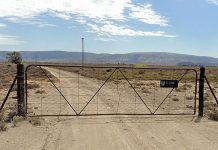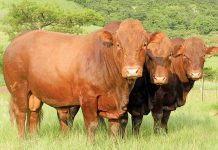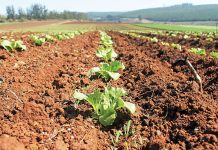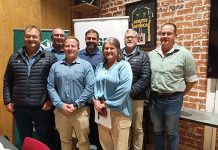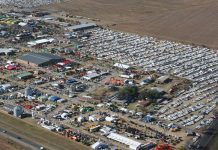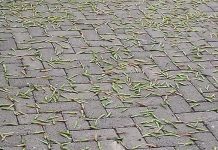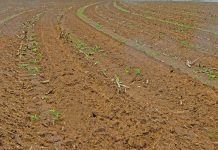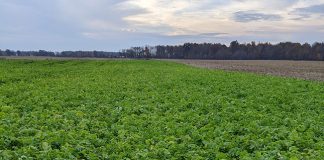
DA leader John Steenhuisen will head the Department of Agriculture while PAC leader Mzwanele Nyhontso will lead the Department of Land Reform and Rural Development.
This separation raises a key question: how will it impact South Africa’s agriculture sector?
Agriculture vs land reform and rural development
According to political analyst Theo Venter, there have been two or three periods in South Africa in the past where land reform and agriculture were separate ministries.
He added that under former agriculture minister Thoko Didiza, the idea was to have one ministry, the Department of Agriculture, Rural Development and Land Reform because the departments are related to each other.
READ New ministers for departments of agriculture and land reform
“It made sense to bring them together because, with the government of national unity, on a political basis, the department was divided into two departments. For the Department of Agriculture, their responsibility will be to deal with everything, like the country’s ability to manage agriculture-related issues and also managing the commercial production of agriculture,” he said.
Venter told Farmers Weekly that the Department of Land Reform and Rural Development would be responsible for issues like making land available and enabling the transition of land from previous owners to owners who now qualified for it. It would also deal with land claims that still need to be completed.
“In a long-term transformation cycle, they will be responsible for merging farmers and land use. What concerns me is that Steenhuisen − being minister of agriculture, an important portfolio − and the PAC on land reform, these two parties have different political ideologies and they will have to figure out a way of working together,” he said.
Making an impactful change
Steenhuisen told Farmer’s Weekly he was excited about the new role and believed the ministry held potential for job creation and national economic growth.
“I am very excited. I think agriculture and agro-processing are huge opportunities for South Africa and I think they are catalytic for job creation and economic growth in the country.
“If I look at other countries in this situation, with a lot of unskilled unemployed population and low economic growth numbers, I think there is a huge opportunity to use agriculture as a catalytic industry and area to grow the economy. I am very excited about that,” he said.
READ How Limpopo co-operative’s training programmes are empowering workers
While the new task at hand may seem daunting, he expressed his keen interest in becoming more familiar with the duties he is expected to perform for the role and understanding the issues and what can be done to find solutions.
“I need to build a partnership with the role players of the industry. We are very lucky that the sector is organised and there are a number of industry organisations that represent small emerging farmers [as well as] big commercialised farmers,” he said.
Working hand-in-hand
According to Steenhuisen, having the two ministries separated was a strategically accurate move because he believes the agriculture side has suffered as a result of land reform and rural development, which gets the bulk of the “noise, attention and emotion”.
He added that it was good to have an agriculture department that was able to focus on delivering and on that particular sector.
For him, the first thing to do will be to build a good partnership with Nyhontso, the new minister of land reform and rural development.
“As an agricultural minister, I want to be a loud voice of agriculture in dealing with these issues with other ministers. I intend to be a very loud voice in the agriculture sector in cabinet and deal with departments that are having a knock-on effect on agriculture, and to be taken seriously as a result,” he said.
Addressing land reform and rural development
Nyhontso shared his vision for the role and highlighted the historical significance of land to PAC politics and the importance of addressing land claims.
“We are grateful that the president has allocated the department of land reform and rural development to us because land has always been at the centre of PAC politics and the core of what we stand for. This is an opportunity for us to help African people to gain or access their land claims, which is my priority. A lot of land claims have never been paid and it means there is a backlog. We want to start there and address that and I believe by doing so we can make a difference,” he said.
Nyhontso, who comes from a rural background, stressed the need for rural development and improving living conditions.
READ Successes chalked up by Grain SA’s Farmer Development Programme
“We have been given an opportunity to develop rural areas. I am a rural boy coming from rural areas, so I know how people in rural areas are suffering. I know how they have been living below the poverty line and how they have been struggling to make ends meet. We want to develop rural areas and make access to land and resources available so that they can produce food from their own land and gardens,” he explained.
He also emphasised the need for collaboration with Steenhuisen to address landlessness and ensure people have access to land.
“I hope Mr. Steenhuisen knows that the problem of African people is landlessness and that land is important. If we don’t address the landlessness of our people, then we are still poor. I hope we work together well. I will remind him that people need access to land. I understand we have different ideological perspectives, but we must have a minimum programme to address the problems of our people,” Nyhontso added.
As Nyhontso prepares for his role, he plans to build on the work of his predecessor, for agriculture minister Thoko Didiza, who has offered her assistance for a smooth transition.
Looming uncertainty
Meanwhile, Free State Agriculture CEO Gernie Botha said the president’s announcement to establish two departments had not been expected.
He explained that in the Free State, the provincial departments of agriculture, rural development and environmental affairs were being handled by a single member of the executive council. He hoped there would be clarity on the departments’ different mandates, focus areas, strategies and plans.
“The separation could mean that more emphasis could be placed on key aspects that include growth, increased export markets and the sustainability of the agricultural sector. Prior to clarity on the respective roles to be fulfilled, it can only be speculated on what difference there will be,” said Botha.
“What is however required is for the agriculture sector to flourish and bring benefits to the economy. Focus should therefore be placed on the creation of a conducive environment for the agriculture sector to ensure a sustainable future in which farmers can place food on the table. We will gladly assist efforts that are aimed at ensuring food security,” he said.

